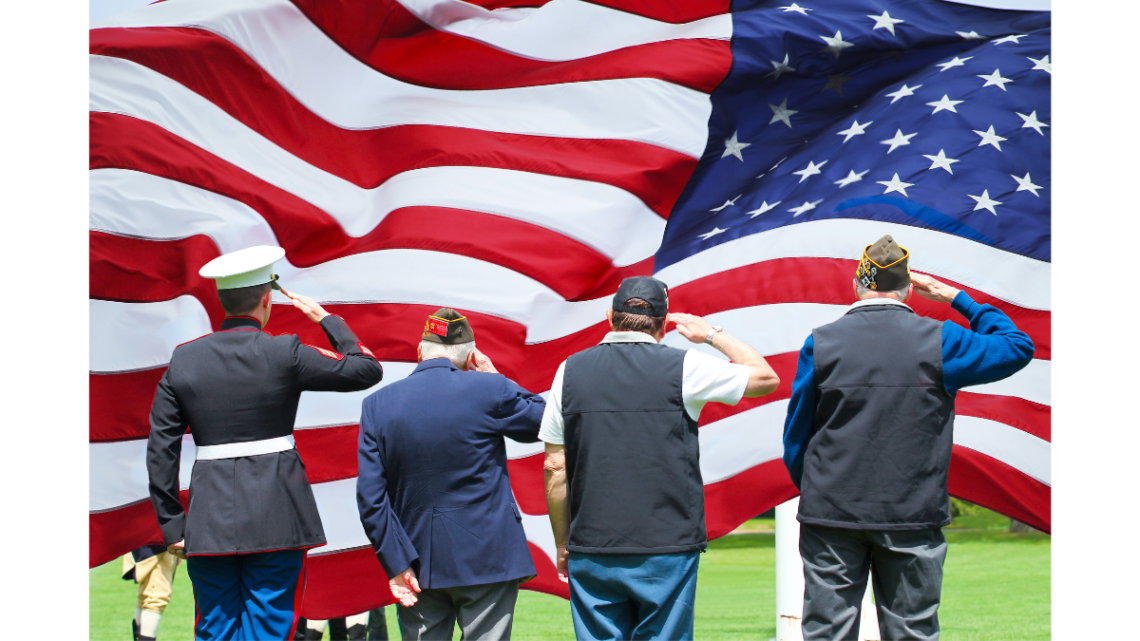The brave men and women who serve in the military make immense sacrifices to protect our country. One often overlooked consequence of their service is the prevalence of hearing loss among veterans. Exposure to intense noise levels, combat situations, and loud machinery contributes to a higher risk of hearing loss. Let’s take a closer look at the impact of hearing loss on veterans, the unique challenges they face, and the available support and solutions.
The Battlefield: Noise-Induced Hearing Loss
Military personnel are often exposed to high-intensity noise from gunfire, explosions, aircraft, and heavy machinery. Prolonged exposure to such loud environments can lead to noise-induced hearing loss (NIHL). This is the most common type of hearing loss among veterans.
Explosions on the battlefield not only produce intense noise but also generate shockwaves that can cause damage to the delicate structures of the inner ear. Blast-related injuries contribute significantly to hearing loss among veterans.
The Invisible Wounds: Impact on Mental Health
Hearing loss isn’t just about losing some of the sounds around you. It can also create communication barriers and make it more difficult for veterans to interact with fellow service members and maintain effective communication in critical situations. It also means that they have a harder time communicating with loved ones when they’re home.
Veterans with hearing loss may experience social isolation, leading to feelings of loneliness and depression. The sense of disconnection from peers and the community can exacerbate the mental health challenges already faced by many veterans.
Navigating the Veterans Administration (VA) System
Veterans with service-connected hearing loss may be eligible for disability compensation through the Department of Veterans Affairs (VA). The VA recognizes the impact of hearing loss on a veteran’s quality of life and offers financial support to those affected.
The VA provides comprehensive hearing healthcare services, including diagnostic evaluations, hearing aid fittings, and ongoing support. Veterans can access these services through VA medical centers and community-based outpatient clinics.
Coping Strategies and Support
Hearing aids are a common and effective solution for managing hearing loss. Hearing aid technology has come a long way in recent years, and these devices can be a powerful tool to support communication.
Veterans with hearing loss can also benefit from communication skills training to enhance their ability to navigate conversations, both in personal and professional settings. These programs focus on strategies for effective communication for those with hearing loss.
Joining support groups tailored to veterans with hearing loss can provide a sense of community and understanding. Sharing experiences, challenges, and coping strategies with peers can be a valuable source of emotional support.
Workplace Challenges: Transitioning to Civilian Life
Veterans transitioning to civilian life may face challenges in the job market due to their hearing loss. Discrimination and a lack of awareness about the skills and capabilities of veterans with hearing impairment can contribute to unemployment or underemployment.
Employers can play a crucial role in supporting veterans with hearing loss by providing workplace accommodations. This may include using assistive listening devices, clear communication strategies, and creating a supportive work environment.
Tackling the Stigma: Raising Awareness
Raising awareness about hearing loss among veterans is essential for changing misconceptions and stereotypes about hearing loss. Understanding that hearing impairment is not a sign of weakness but a consequence of dedicated service helps reduce stigma.
Highlighting the importance of regular hearing check-ups during and after military service is crucial. Early detection of hearing loss allows for timely intervention and support, preventing further deterioration.
Honoring Those Who Serve
Hearing loss in veterans is a silent sacrifice that deserves recognition and support. As a society, it is our responsibility to raise awareness, combat stigma, and ensure that veterans receive the care and accommodations they need to lead fulfilling lives after their service.
The Department of Veterans Affairs, support organizations, and the broader community play vital roles in providing assistance and understanding. By acknowledging the challenges faced by veterans with hearing loss and fostering a culture of inclusivity, we can honor their service and help them overcome hearing loss. This is a way to express our gratitude not only through words but through meaningful actions. If you’ve served our country, visit us today for a hearing test.

